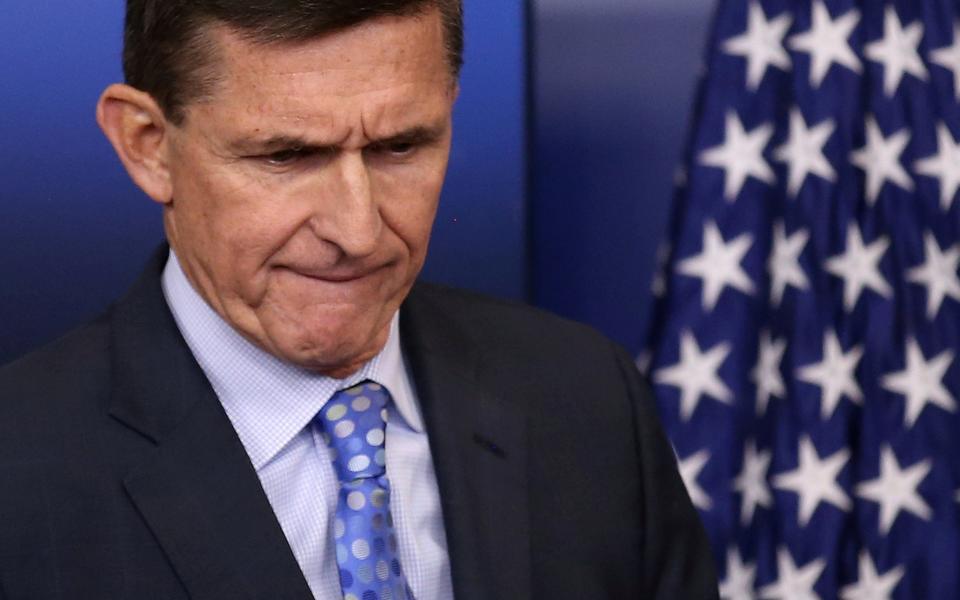Former CIA director 'worried' during US election that Russia was colluding with Donald Trump's campaign

America's former CIA director was "worried" during the presidential election that Donald Trump's campaign was colluding with Russian officials to influence the outcome, he said on Tuesday.
John Brennan told members of the House intelligence committee he feared the Kremlin had sought to suborn associates of the Trump campaign, and that the FBI investigation into the alleged foreign interference is therefore "well founded".
The revelations came amid claims that Mr Trump asked his intelligence chiefs earlier this year to help him push back against the FBI inquiry, and publicly deny the existence of any evidence of alleged collusion.
The Washington Post reported that in March, after the public testimony by James Comey on the matter, the president made separate appeals to Daniel Coats, the director of national intelligence, and Admiral Michael Rogers, the director of the national security agency.
Mr Trump's conversation with Admiral Rogers was documented in a memo written at the time by a senior member of the NSA, an official said. It's not clear if notes on the conversation with Mr Coats were also made.
Donald Trump and the Russian connections
Any such documentation could be handed over to Robert Mueller, the special counsel now overseeing the investigation, and to the four congressional inquiries into the affair.
Both intelligence chiefs refused to comply with the request, deeming it inappropriate, according to two current and two former officials.
“The problem wasn’t so much asking them to issue statements, it was asking them to issue false statements about an ongoing investigation,” a former senior intelligence official told the Washington Post.
The allegations prompted comparisons former President Richard Nixon's unsuccessful efforts to use the CIA to shut down the FBI's investigation of the Watergate break-in, citing reasons of national security.
Mr Trump has described the investigations as a "witch hunt". Replying to the Washington Post story, the White House said it would not "confirm or deny unsubstantiated claims based on illegal leaks from anonymous individuals".
Answering questions from the Senate armed services committee, Mr Coats said it would be "inappropriate" to comment on the story. But he did say that politicising intelligence was inappropriate — and that he had made that position clear to the Trump administration.
It was previously reported that Mr Trump asked Mr Comey, who has since been fired, to drop the investigation into Michael Flynn, his former national security director who was forced to resign over his contacts with the Kremlin's chief diplomat in Washington.

Richard Burr, the chairman of the senate intelligence committee said on Tuesday that he was considering holding Mr Flynn in contempt of Congress, if he failed to turn over documents regarding his contacts with Russian officials.
Mr Flynn has refused to respond to a supboena, asserting that he has a right not to testify if it the appearance will incriminate himself.
In his testimony, Mr Brennan said it became clear last summer that Russia was attempting to interfere in the US presidential election, and that he warned Alexander Bortnikov, the head of Russia's FSB security service that such interference would hurt the relationship with Washington.
US intelligence agencies concluded in January that Moscow tried to tilt the November presidential election to Mr Trump's favour, including by hacking into and leaking the emails of senior Democrats. Moscow has always denied the allegation.
"It should be clear to everyone Russia brazenly interfered in our 2016 presidential election process and that they undertook these activities despite our strong protests and explicit warning that they do not do so," Mr Brennan said.
Donald Trump and Russian espionage

 Yahoo News
Yahoo News 
